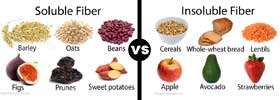Difference between Ulcer and GERD
Key Difference: Ulcer is a disease that is caused by bacteria, Helicobacter pylori (H. pylori) bacteria to be exact. The bacteria produce substances that weaken the mucous lining causing the stomach to get burned. Gastroesophageal reflux disease (GERD) is a medical condition in which digestive acid in the stomach flows into the esophagus causing pain and discomfort. The disease is caused by changes in the barrier between the stomach and the esophagus.
Ulcers and GERD are two different types of diseases that may cause a person discomfort, burning sensation or pain in the stomach. These are often mistaken to be the same disease; however, they are not. Ulcers and GERD may seem the same because of the burning sensation and the acidic taste in the mouth, which makes it seem like a normal case of acid reflux or heartburn. However, ulcers are much more dangerous and can even progress to causing stomach cancer. GERD is basically the burning of the esophagus caused by constant backflow of acid.
 Ulcer is a disease that is caused by bacteria, Helicobacter pylori (H. pylori) bacteria to be exact. This species of bacteria has a spiral shape that allows it to swim through the mucous lining of the stomach and produce substances that weaken the mucous lining. This causes the acid to burn the internal side of the stomach, resulting in the burning sensation and the pain the stomach. They can also attach to the cells of the stomach and cause inflammation, causing the stomach to produce excess acid. This disease may show symptoms or may not, making it much more difficult to diagnose. Ulcers can also occur on the skin and are known as sores and blisters. These cause the skin to become red and irritated, resulting in pain when touched or pressed. These sores are caused by exposure to heat or cold, irritation, problems with blood circulation or the lack of mobility.
Ulcer is a disease that is caused by bacteria, Helicobacter pylori (H. pylori) bacteria to be exact. This species of bacteria has a spiral shape that allows it to swim through the mucous lining of the stomach and produce substances that weaken the mucous lining. This causes the acid to burn the internal side of the stomach, resulting in the burning sensation and the pain the stomach. They can also attach to the cells of the stomach and cause inflammation, causing the stomach to produce excess acid. This disease may show symptoms or may not, making it much more difficult to diagnose. Ulcers can also occur on the skin and are known as sores and blisters. These cause the skin to become red and irritated, resulting in pain when touched or pressed. These sores are caused by exposure to heat or cold, irritation, problems with blood circulation or the lack of mobility.
Peptic ulcers and duodenal ulcers are two of the most common types of ulcers that take place in the gastro-esophageal tract. Peptic ulcers take place in the stomach, while the duodenal ulcers take placed in the duodenum or the upper part of the small intestine. The least common type of ulcer is esophageal ulcers, which take place in the esophagus as a result of excessive drinking. Peptic ulcers cause sharp burning or gnawing sensation in the stomach, which gets worse when stomach is empty and better when it is full. The sensation also does not change with the position of the body, such as lying down or standing. The pain could also worsen if the person takes pain medication and better when they take an antacid. Other symptoms also include: weight loss, loss of appetite, bloating, burping, nausea, vomiting and black, tarry stools.

Gastroesophageal reflux disease (GERD) is a medical condition in which digestive acid in the stomach flows into the esophagus causing pain and discomfort. The diseases is caused by changes in the barrier between the stomach and the esophagus, including relaxation of the lower esophageal sphincter (LES), a valve type muscle that allows food only to travel one way. GERD is also known as gastro-oesophageal reflux disease (GORD), gastric reflux disease, or acid reflux disease. These changes could be temporary or permanent depending on the condition of the stomach and the lining.
Mayo Clinic defines ‘GERD’ as, “a chronic digestive disease that occurs when stomach acid or, occasionally, bile flows back (refluxes) into your food pipe (esophagus). The backwash of acid irritates the lining of your esophagus and causes GERD signs and symptoms.” While, many people occasionally suffer from this due to certain foods and lifestyle, reoccurring of this condition causes GERD, serious medical condition. Signs and symptoms of GERD include heartburn and acid reflux.
Heartburn is common and can occur as frequently has once a week for some people. However, any more than one per week can point to a much serious disease known as gastroesophageal reflux disease or GERD. GERD is a chronic disease where acid constantly flow from the stomach to the lower esophagus, thus burning the esophagus. Long-term GERD can result in Barrett's esophagus. Barrett's esophagus is a condition where the color and composition of the esophagus change due to constant exposure to digestive acid. Barrett’s can in-turn cause esophageal cancer. Heartburn can also be caused by other conditions such as inflamed stomach lining, peptic ulcer or a hiatal hernia.
Originally ulcers were considered to occur due to a spike in lifestyle changes, or excess fatty foods, alcohol, smoking and many other such factors. This is one of the main reasons why ulcers are commonly confused with other gastric diseases or conditions such as GERD. Ulcers are quite treatable and manageable and should the person should consult a doctor the moment they experience excessive stomach pain.
Image Courtesy: gastriculcer.blogspot.com, sinus-pro.com









Add new comment